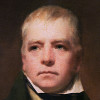“ to expose a man’s self bravely to the utmost peril of death, is indeed something in every one of us, because we there hazard all; but for the world’s concern, they are things so ordinary, and so many of them are every day seen, and there must of necessity be so many of the same kind to produce any notable effect, that we cannot expect any particular renown from it ”
Michel de Montaigne, The Essays of Michel de Montaigne (1580). copy citation
| Author | Michel de Montaigne |
|---|---|
| Source | The Essays of Michel de Montaigne |
| Topic | death necessity |
| Date | 1580 |
| Language | English |
| Reference | |
| Note | Translated by Charles Cotton |
| Weblink | http://www.gutenberg.org/files/3600/3600-h/3600-h.htm |
Context
“it must be some very eminent greatness, or some consequence of great importance that fortune has added to it, that signalises a private action, not of a harquebuser only, but of a great captain; for to kill a man, or two, or ten: to expose a man’s self bravely to the utmost peril of death, is indeed something in every one of us, because we there hazard all; but for the world’s concern, they are things so ordinary, and so many of them are every day seen, and there must of necessity be so many of the same kind to produce any notable effect, that we cannot expect any particular renown from it:
“Casus multis hic cognitus, ac jam Tritus, et a medio fortunae ductus acervo.” [“The accident is known to many, and now trite; and drawn from the midst of Fortune’s heap.”—Juvenal, Sat., xiii. 9.]”
source



